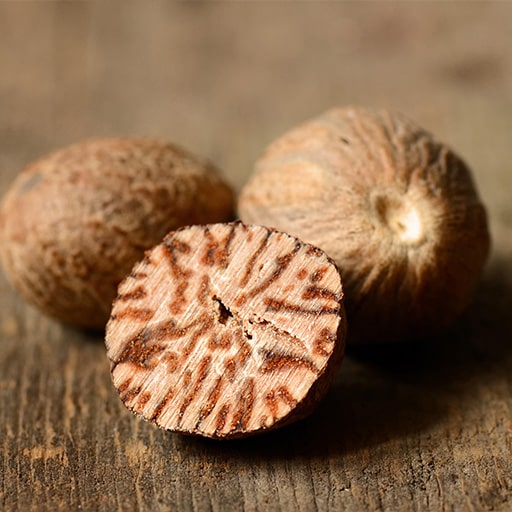Nutmeg, that humble spice tucked away in the corner of your spice rack, has a rich history and a wide array of uses that go far beyond its role as a seasoning for your favorite dishes. Derived from the seed of the Myristica fragrans tree, native to the Indonesian Banda Islands, nutmeg has been cherished for centuries for its aromatic and flavorful properties, as well as its potential health benefits. In this article, we’ll delve into the fascinating world of nutmeg, exploring its history, culinary uses, medicinal properties, and more.
A Brief History of Nutmeg
Nutmeg’s history is intertwined with the tales of ancient spice trade routes and exploration. It was once a highly sought-after commodity, considered as valuable as gold during the Middle Ages. Nutmeg’s allure led explorers and adventurers to set sail across treacherous seas in search of the mysterious Spice Islands, where the nutmeg tree thrived.
The origins of nutmeg can be traced back to Indonesia, specifically the Banda Islands. These islands were the sole producers of nutmeg until the 17th century when the Dutch managed to establish a monopoly on its cultivation. This monopoly was fiercely guarded, and the Dutch even went as far as destroying nutmeg trees on other islands to maintain their control over this valuable spice.
During this time, nutmeg was considered not only a culinary treasure but also a remedy for various ailments. It was believed to have potent medicinal properties and was used to treat everything from digestive issues to anxiety.
Culinary Uses of Nutmeg
Nutmeg’s warm, earthy flavor is a staple in many kitchens around the world. It adds depth and complexity to a wide range of dishes, both sweet and savory. Here are some common culinary uses of nutmeg:
- Baking: Nutmeg is a key ingredient in many baked goods, including pumpkin pie, spice cakes, and fruit tarts. Its distinctive flavor shines in these treats.
- Sauces and Soups: Nutmeg can be found in creamy sauces like béchamel and Alfredo, as well as in hearty soups and stews.
- Spiced Beverages: It’s a star in seasonal favorites like eggnog and mulled wine, where just a pinch can transform the entire drink.
- Curries: Nutmeg is a crucial element in many spice blends used in Indian and Middle Eastern cuisine. It adds warmth and depth to curries and biryanis.
- Pasta Dishes: A sprinkle of nutmeg over a bowl of creamy pasta can elevate the dish to a new level of sophistication.
Health Benefits of Nutmeg
Beyond its culinary applications, nutmeg has been explored for its potential health benefits:
- Digestive Aid: Nutmeg is known for its ability to aid digestion and soothe gastrointestinal discomfort. It is often used as a home remedy for indigestion and flatulence.
- Pain Relief: Some studies suggest that nutmeg may have mild analgesic properties and could help alleviate pain when used in moderation.
- Anti-Inflammatory: Nutmeg contains compounds with anti-inflammatory properties, which may contribute to its potential health benefits.
- Antioxidant Properties: The spice is a source of antioxidants, which can help protect cells from oxidative stress.
However, it’s important to note that nutmeg should be used in moderation, as excessive consumption can lead to adverse effects, including hallucinations and toxicity.
A Word of Caution
While nutmeg has its merits, it’s crucial to use it in moderation. Excessive nutmeg consumption can lead to nutmeg poisoning, known as myristicin toxicity. Symptoms of nutmeg poisoning include nausea, vomiting, hallucinations, and even seizures. Therefore, it’s advisable to use nutmeg sparingly in culinary creations and consult with a healthcare professional before considering it as a remedy for any ailment.

